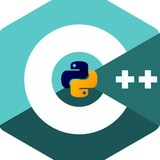In a scientific project, there is always a high chance of encountering logical errors that are emerging from dimensions and units. These types of errors are very hard to detect. Hopefully, C++ and other strongly-typed languages help us to avoid such logical errors. One way is to attach units to values to avoid meaningless computation and detect unit-related errors.
For example, it is meaningless to pass a dimensional quantity to a cosine or exponential function. In the same way, it does not make sense to assign a mass to a quantity with a velocity dimension. The STUDIS library is designed to catch such errors at compile-time.
Here is the link to the library:
https://github.com/DiscreteLogarithm/studis
Link to post
For example, it is meaningless to pass a dimensional quantity to a cosine or exponential function. In the same way, it does not make sense to assign a mass to a quantity with a velocity dimension. The STUDIS library is designed to catch such errors at compile-time.
Here is the link to the library:
https://github.com/DiscreteLogarithm/studis
Link to post
high quality.mp4
16.7 MB
High quality video of above post.
Mouse brain imaging.
Mouse brain imaging.
JiTCODE (just-in-time compilation for ordinary differential equations) is an extension of SciPy’s ODE (scipy.integrate.ode) or Solve IVP (scipy.integrate.solve_ivp). Where the latter take a Python function as an argument, JiTCODE takes an iterable (or generator function or dictionary) of symbolic expressions, which it translates to C code, compiles on the fly, and uses as the function to feed into SciPy’s ODE or Solve IVP. Symbolic expressions are mostly handled by SymEngine, SymPy’s compiled-backend-to-be (see SymPy vs. SymEngine for details).
https://jitcode.readthedocs.io/en/v1.6.0/#
https://jitcode.readthedocs.io/en/v1.6.0/#
JiTCDDE (just-in-time compilation for delay differential equations) is a standalone Python implementation of the DDE integration method proposed by Shampine and Thompson [ST01], which in turn employs the Bogacki–Shampine Runge–Kutta pair [BS89]. JiTCDDE is designed in analogy to JiTCODE (which is handled very similarly to SciPy’s ODE (scipy.integrate.ode)): It takes an iterable (or generator function or dictionary) of symbolic expressions, translates them to C code, compiles them and an integrator wrapped around them on the fly, and allows you to operate this integrator from Python. Symbolic expressions are mostly handled by SymEngine, SymPy’s compiled-backend-to-be (see SymPy vs. SymEngine for details).
https://jitcdde.readthedocs.io/en/stable/
https://jitcdde.readthedocs.io/en/stable/
talk_optimization.pdf
11.7 MB
Visual introduction to optimization in Deep Learning, ranging from 1st-order methods, 2nd-order and Natural Gradient (and approximations of it such as K-FAC). Sharing the PDF (easier to download): https://t.co/pGP3mLNElt https://t.co/cs3SdQ4TNm
JiTCSDE (just-in-time compilation for stochastic differential equations) is a standalone Python implementation of the adaptive integration method proposed by Rackauckas and Nie [RN17], which in turn employs Rößler-type stochastic Runge–Kutta methods [R10]. It can handle both Itō and Stratonovich SDEs, converting the latter internally. JiTCSDE is designed in analogy to JiTCODE (which is handled very similarly to SciPy’s ODE (scipy.integrate.ode)): It takes iterables (or generator functions or dictionaries) of symbolic expressions, translates them to C code, compiles them and an integrator wrapped around them on the fly, and allows you to operate this integrator from Python. Symbolic expressions are mostly handled by SymEngine, SymPy’s compiled-backend-to-be (see SymPy vs. SymEngine for details).
https://jitcsde.readthedocs.io/en/v1.6.0/
https://jitcsde.readthedocs.io/en/v1.6.0/
HEADER FILES only C++ library for analysis of neurophysiological and simulated data.
https://github.com/Ziaeemehr/neuro_toolbox
Any Feedback is welcomed.
#new_project
#neuro_toolbox
https://github.com/Ziaeemehr/neuro_toolbox
Any Feedback is welcomed.
#new_project
#neuro_toolbox
Brainhack New York 2020
https://brainhack-ny.github.io/
https://brainhack-ny.github.io/
